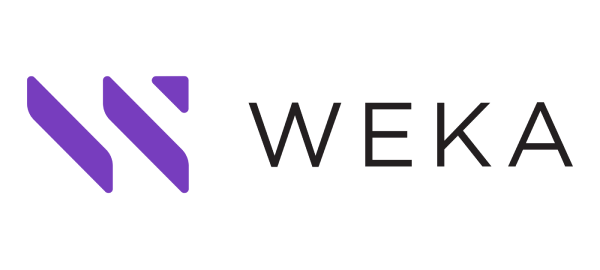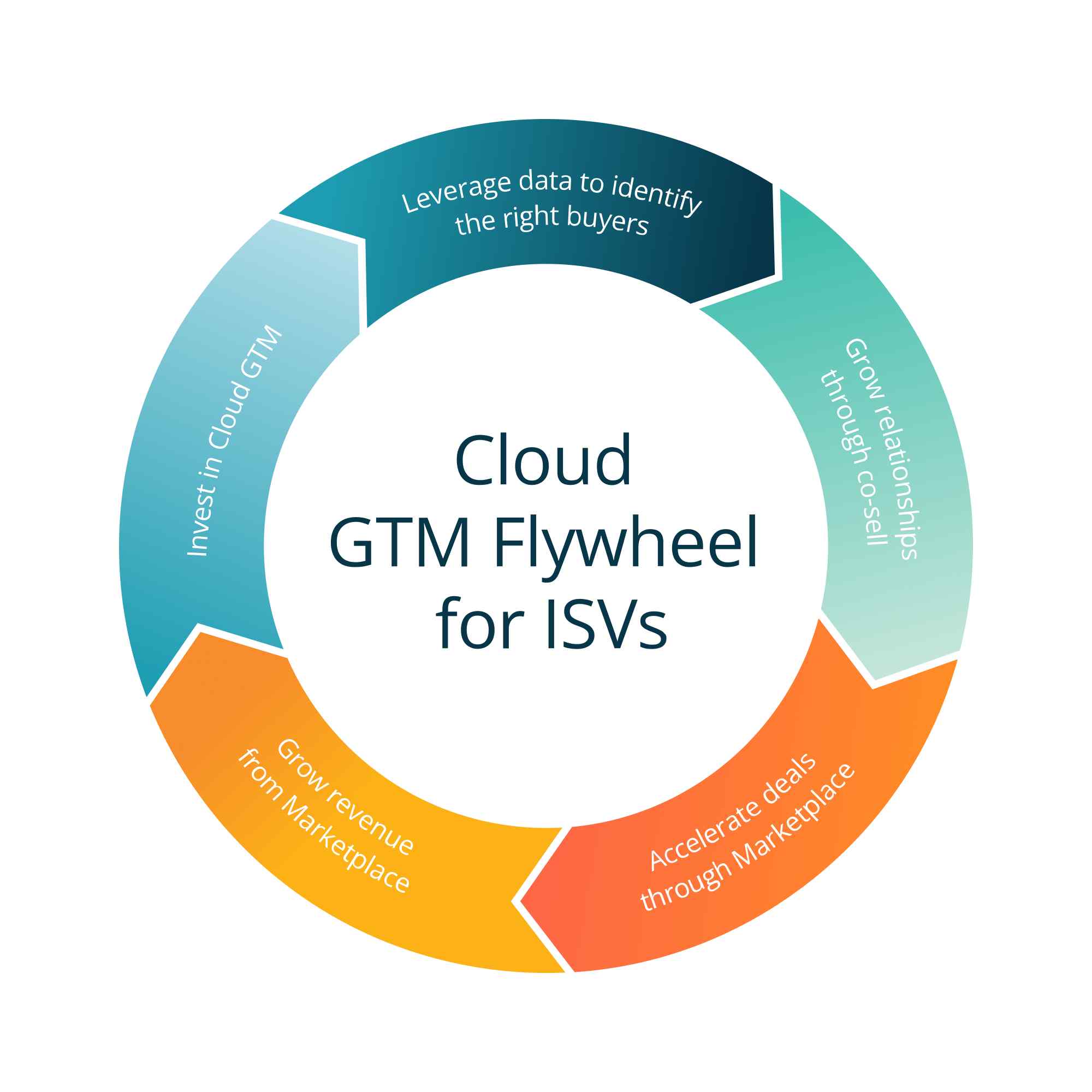Learn how Datometry, Seeq, and Weka started on their co-sell journeys — and what led to their success.
Co-selling is the linchpin for Marketplace success, and every year, more ISVs are leveraging it to scale their business. In fact, 74% of software companies list “unlocking co-sell opportunities” as their top reason for selling through the Clouds, according to Tackle’s State of Cloud Marketplaces Report 2022. However, that doesn’t mean co-selling is as easy as flipping a switch. It takes time and effort to get it right.
Weka, a cloud data and infrastructure company, was an early adopter of Cloud Marketplaces, embracing a Cloud go-to-market with AWS, but didn’t initially co-sell with the Cloud Provider.
“The only way we would do a private offer was through a bring-your-own-license structure that came from a direct relationship with the customer,” said Barbara Murphy, VP of Cloud Strategy, Weka. “We were really cutting out our partners on the [AWS] side, which was not going to help scale our business.”
But all of that changed once Weka began to co-sell with AWS. “Even though we’ve been in the cloud for a long time, it wasn’t until we aligned our go-to-market with the AWS Marketplace that we started to see any success as a cloud vendor,” said Barbara. “I’m proud to say that we’ve seen humongous growth in the last 12 months as we’ve done that.”
Read more: How to sell more on AWS Marketplace with the ACE Program
Between co-selling and creating private offers, Weka built a strong AWS pipeline and closed an increasing number of AWS deals. In less than a year, the company landed several Fortune 1000 customers via AWS Marketplace and increased its cloud pipeline by more than 20x.
How does co-selling work?
Co-selling is a collaborative partnership between the ISV and the Cloud Provider to help accelerate sales (for the ISV) and boost cloud consumption (for the Cloud Provider). As Weka’s story shows, co-selling can be a game changer for ISVs. By partnering with a Cloud Provider in a co-sell relationship, an ISV can steadily build sales momentum with trusted partners. The goal is to help the ISV close more deals faster, while helping the Cloud Provider to expand its own business.
Read more: The Alliance Leader’s Guide to Cloud Co-sell
Co-selling and Marketplace go hand-in-hand to keep software deals flowing. Think of co-selling as part of a flywheel that looks something like this:
- Feed your sellers and your pipeline with insight into the right buyers to target
- Leverage that data to register the right co-sell opportunities and grow your relationships with the Cloud Providers
- Accelerate the speed at which those deals close by leveraging Marketplace
- As Marketplace revenue grows, the investment in keeping the flywheel spinning grows
Co-selling takes time and commitment, and there are no guarantees that the Cloud Provider will share leads. It’s incumbent upon the ISV to get the co-sell ball rolling and to demonstrate that its product is an indispensable part of the Cloud Provider’s ecosystem, which begins and ends with a well-crafted “better together” story.
Create a “better together” story
For nearly every seller, a strong co-sell relationship with a Cloud Provider hinges on an effective “better together” story.
Think of a “better together” story as a marketing pitch — messaging that illustrates why your product aligns well with the Cloud Provider, and how the marriage between your offering and the Cloud Provider’s services will be a good fit that ultimately benefits software buyers and drives cloud consumption.
Complimentary template download: Creating a “better together” story
Of course, a successful co-selling strategy involves more than a perfect “better together” story, but getting your messaging right is a critical step. Your sales team should be able to clearly articulate the “better together” story, as it’s the crucial piece that helps put your ISV at the top of the Cloud Provider’s marketing and partnership list.
Take the “better together” story to the next level
Companies that have successfully nailed down co-selling have done so in part because they’ve equipped their sales teams with the right messaging and ensured that those teams know how to talk about co-sell and the benefits of the ISV/Cloud Provider partnership.
Seeq, a data visualization, collaboration, and analytics firm, is a good example of a company that found co-sell success through tight ISV/Cloud Provider messaging.
Seeq is on both AWS Marketplace and Microsoft commercial marketplace. Within the first 30 days of being on AWS Marketplace, Seeq transacted its first deal with a mature Marketplace customer, and realized that its Marketplace presence held immense sales opportunities. “That was the first sign to the sales team that there was value to be gained from transacting in the cloud,” said Megan Buntain, VP of Cloud Transformation, Seeq.
Read more: A DIY approach to co-selling
This early success inspired Seeq to explore co-sell opportunities with its Cloud Provider partners, beginning with Microsoft. Seeq’s Marketplace wins clearly underscored the ISV’s potential, and Seeq began focusing on co-selling with Microsoft by hosting internal sales enablement sessions that motivated their teams to increase co-selling efforts.
Seeq was careful to make sure its sales team was well-versed in the benefits of co-sell, as well as its “better together” story — and the effort paid off. During December of 2021, Seeq closed 4 major deals on the Marketplace within 3 weeks of the fiscal year’s end, which boosted the co-sell partnership between the two companies. In 2021, approximately 20% of Seeq’s total ARR was transacted through AWS Marketplace and Microsoft commercial marketplace, a 215% year over year increase. Today, Seeq benefits from a strong partnership with Microsoft through lead generation and co-selling opportunities, and the company continues to meet and exceed their Marketplace goals.
Of course, every company is different, but most ISVs can expect some degree of co-sell success by crafting strong partnership messaging and ensuring that the sales team is completely on board. “We had a little bit of friction to overcome with our own sales teams,” said Weka’s Barbara Murphy. “They thought that if they registered a deal with AWS, they’d ‘steal the business.’ I think that was very naive and it’s very important that you understand that co-selling is actually ‘one plus one equals three,’ not ‘one plus one equals one.’”
When “better together” opens doors
A co-selling relationship with a Cloud Provider can also open up a number of opportunities to close a deal that might not otherwise happen.
Datometry enables software companies to run existing applications directly on Microsoft commercial marketplace without business disruptions or the need for costly and risky database migrations. Datometry was in the final stages of a co-sell motion with a national government organization abroad and the deal had to close before the end of the month. The quickest and most advantageous way to accomplish this was to use Microsoft commercial marketplace as the transaction vehicle. The customer had never transacted via Marketplace before, but Microsoft was able to assist Datometry with the deal, stepping in to support the government organization through the private offer acceptance process.
The co-selling partnership with Microsoft not only paved the way for Datometry to close the deal, but has also helped it to quickly scale its business. “Microsoft is our number one source of leads and we want to be the best partner we can be to them,” says Dan Languille, Head of Microsoft Alliance, Datometry.
Because of its Marketplace and co-sell successes, Datometry leads with Microsoft commercial marketplace as its preferred procurement vehicle for every deal in its pipeline.
By contributing to Microsoft commercial marketplace’s thriving co-sell ecosystem, Datometry not only provides a valuable solution to Microsoft customers, they also help drive cloud consumption for the Cloud Provider — illustrating a critical piece of the “better together” story. “It just comes down to being the best partner we can to Microsoft, which enables us to create better and faster customer outcomes,” Dan said.
Read more: A guide to co-selling with Microsoft
Final thoughts
Through co-selling, ISVs can build momentum in the Marketplace, just as Datometry, Seeq, and Weka have done. With a little patience, a well-orchestrated plan, and a solid “better together” pitch, you can begin building a strong foundation with a Cloud Provider and create your own co-sell success story.
Want to tell your better together story? Download our complimentary template: Creating a “better together” story





